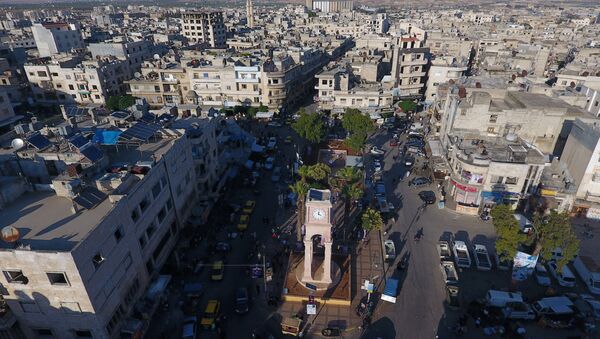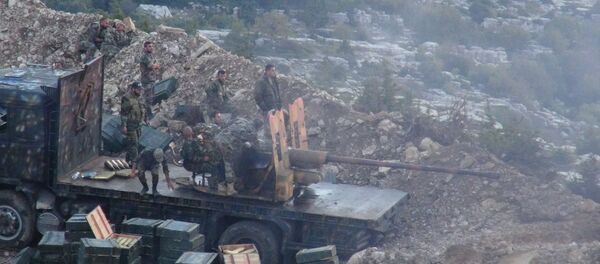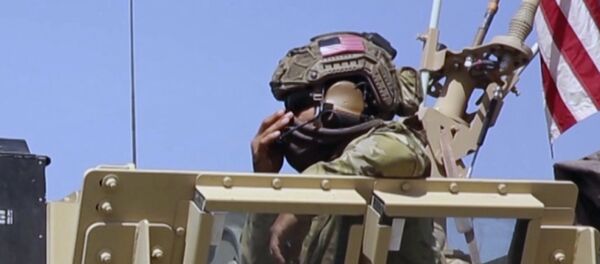Sputnik discussed this with Ilter Turan, professor of international relations at Istanbul Bilgi University in Turkey and former president of the International Political Science Association.
Sputnik: What is your take on Turkey's reinforcement of its military presence in Idlib?
Ilter Turan: It seems that Turkey has been given responsibility for overseeing the peace process there and now the current developments leave the Turkish forces that are responsible for overseeing the peace process exposed. So the sending of these reinforcements should be interpreted in that light and nothing more.
Sputnik: What could you say of Turkey's current position as a moderator between the sides? There's a lot of concern about the offensive which is being prepared in Idlib and the possibility for civilian casualties. Does Turkey have real pull in being able to negotiate a ceasefire or any other sort of non-military interference?
Ilter Turan: Turkey happens to be on reasonably good talking terms with all the actors except Assad's regime, but then that communication is secured through the courtesy of Russia and possibly Iran. So from that perspective, Turkey is in a position to help bring about a solution, the problem with this is that the goals of the various parties do not necessarily converge.
READ MORE: Militants Brought Chlorine Gas to Idlib to Stage Chemical Attack — Russian MoD
Turkish plan is built on disarming these people that are fighting and making them get a safe exit and not necessarily leaving the entire territory under absolute Assad control. It seems our friends, the Russians and the Iranians don't quite agree with that, so what will happen will not be determined exclusively by Turkey's efforts to find a modus vivendi, but also the willingness of the various parties to avoid further fighting ending in disasters.
Sputnik: And what are your thoughts on that? Do you think there is a willingness among the various parties to avoid at all costs a humanitarian disaster?
Ilter Turan: In these efforts, you always witness what has been referred to in international politics as brinkmanship, so it's extremely difficult to make judgments at the moment. But I would still like to think, and I would also predict, that none of the parties have an interest in escalating the fighting to levels that are more costly in terms of human lives and that can develop in directions that are less controllable than the conditions are now.
READ MORE: Former YPG Adviser: Washington Trying to Derail Talks Between Damascus and Kurds
Sputnik: So is there any alternative to an offensive right now in Idlib?
Ilter Turan: Obviously Mr. Assad needs to be told that if he wants to establish sovereignty over the entire country, this has to be part of a plan in which all the fighting parties are included in a settlement; just overtaking everything under his own terms is probably not acceptable and is likely to cause more bloodshed.
Sputnik: What is your take on the current position of the West? We have heard threats from many countries: the US, France, Germany, that there would be strikes in the case that chemical weapons would be used and we've also heard conflicting testimonies from various sides that one or the other side is preparing to either do a false flag attack or a real attack and that they have brought in chemical weapons in the form of chlorine. What are your thoughts on what's going on?
Ilter Turan: I think number one, it's not a good idea to treat the West as a wholly integrated unit that can act together. You have a variety of individual countries: the European Union, the United States, Canada etc. and other members of that community, so they may each respond somewhat differently or they may register nuanced reactions.
READ MORE: US Ambassador Haley Seethes at Syria and Russia Over Contrived Chemical Threat
Sputnik: Do you think that the liberation of Idlib will be de facto the end of the Syrian war?
Ilter Turan: First of all, what you call liberation is not necessarily looked upon as saying bye-bye by many actors including Turkey. There are other parts of Syria in which it will be not so easy for the government of Syria to exercise control, but certainly, if Idlib is taken over by Assad's forces, this would mark another major military achievement in the ongoing conflict.
The views and opinions expressed by the speaker do not necessarily reflect those of Sputnik.



